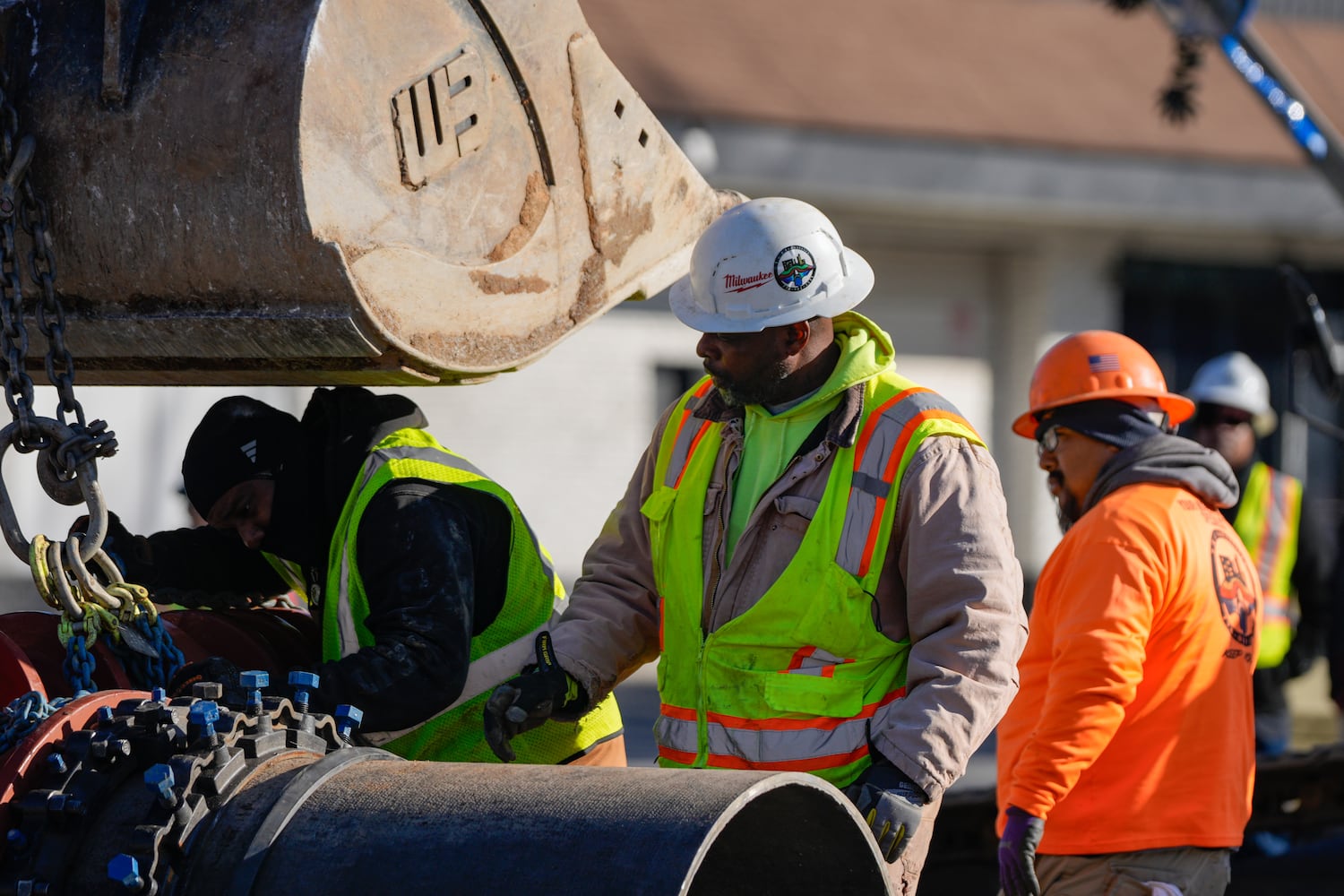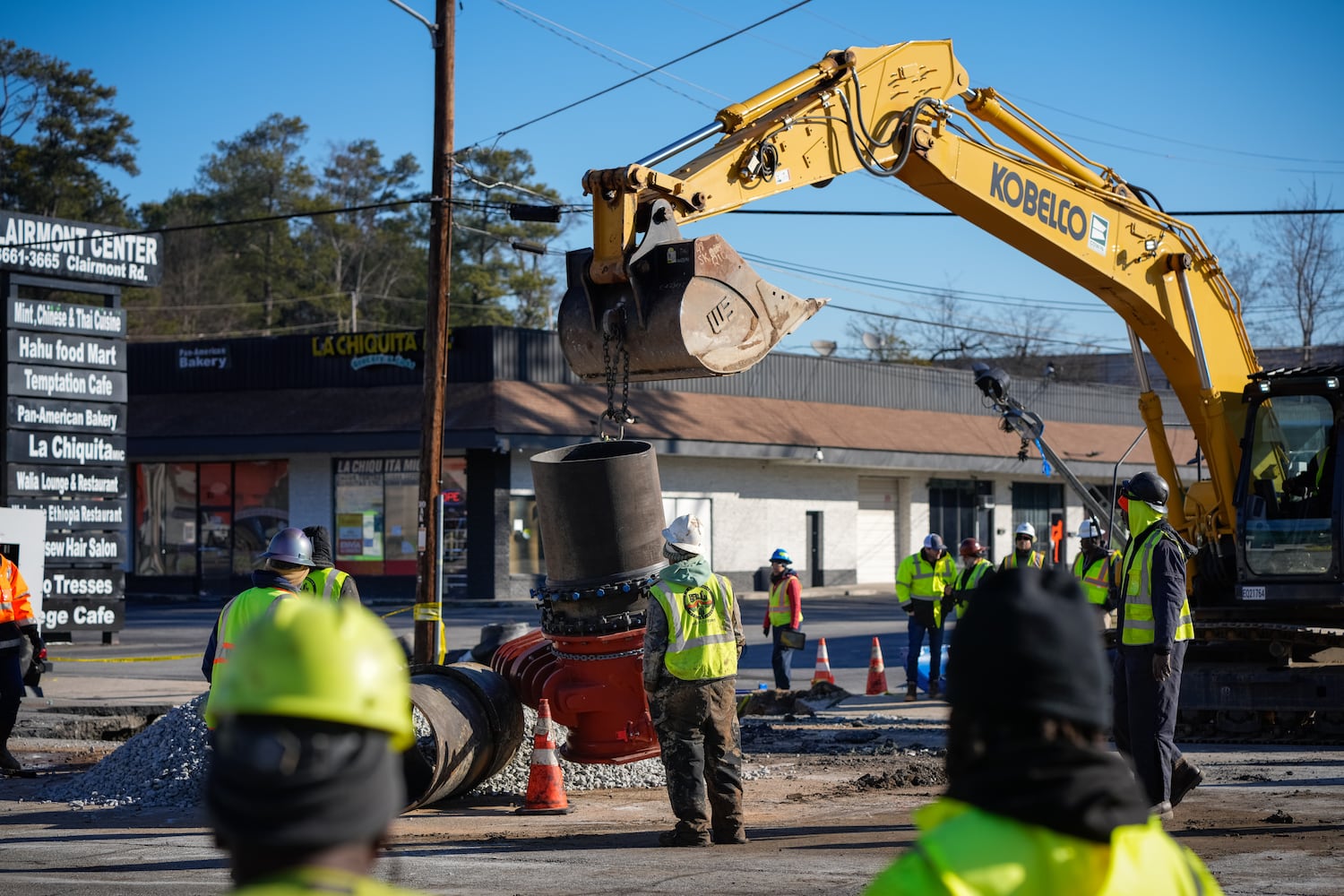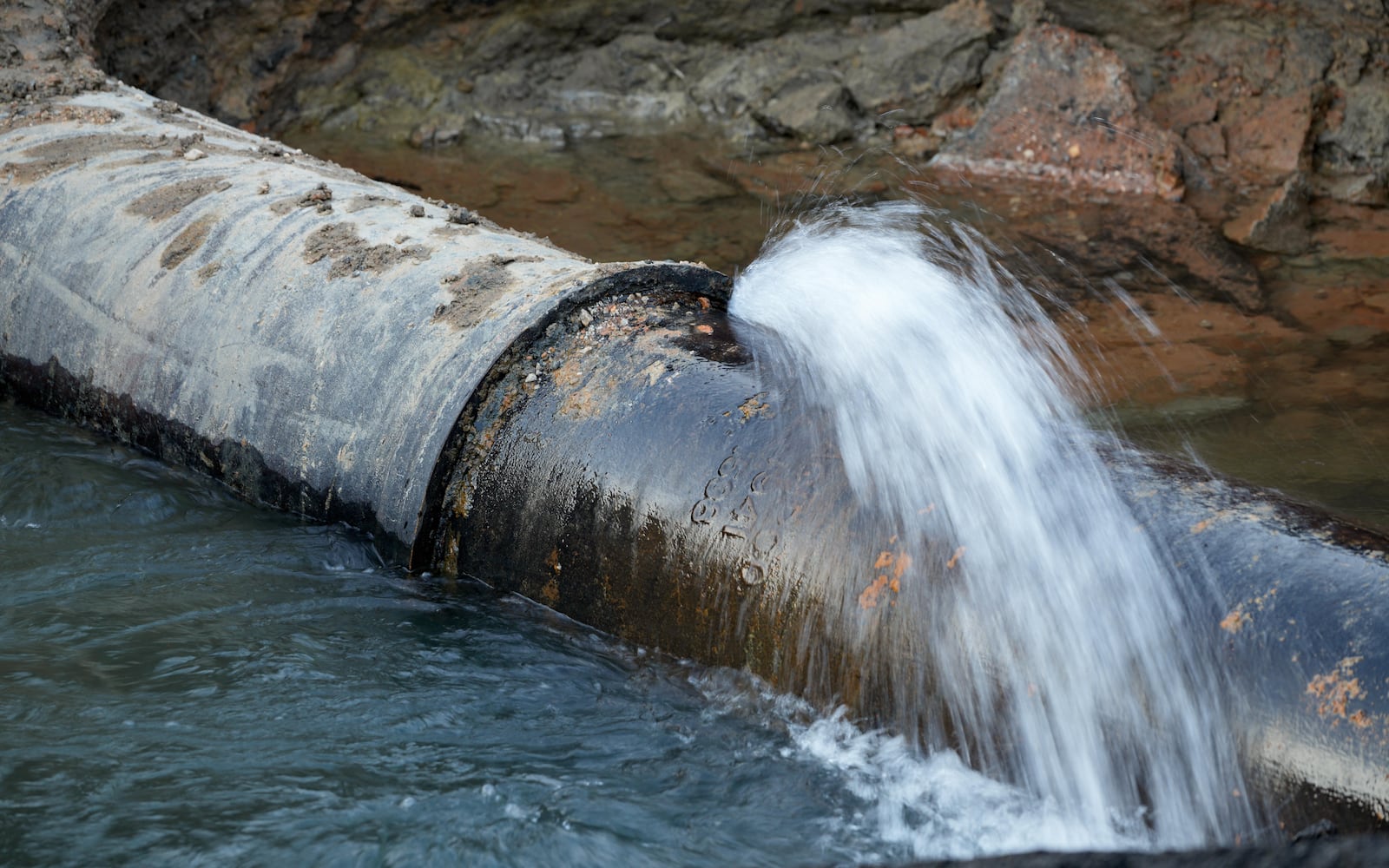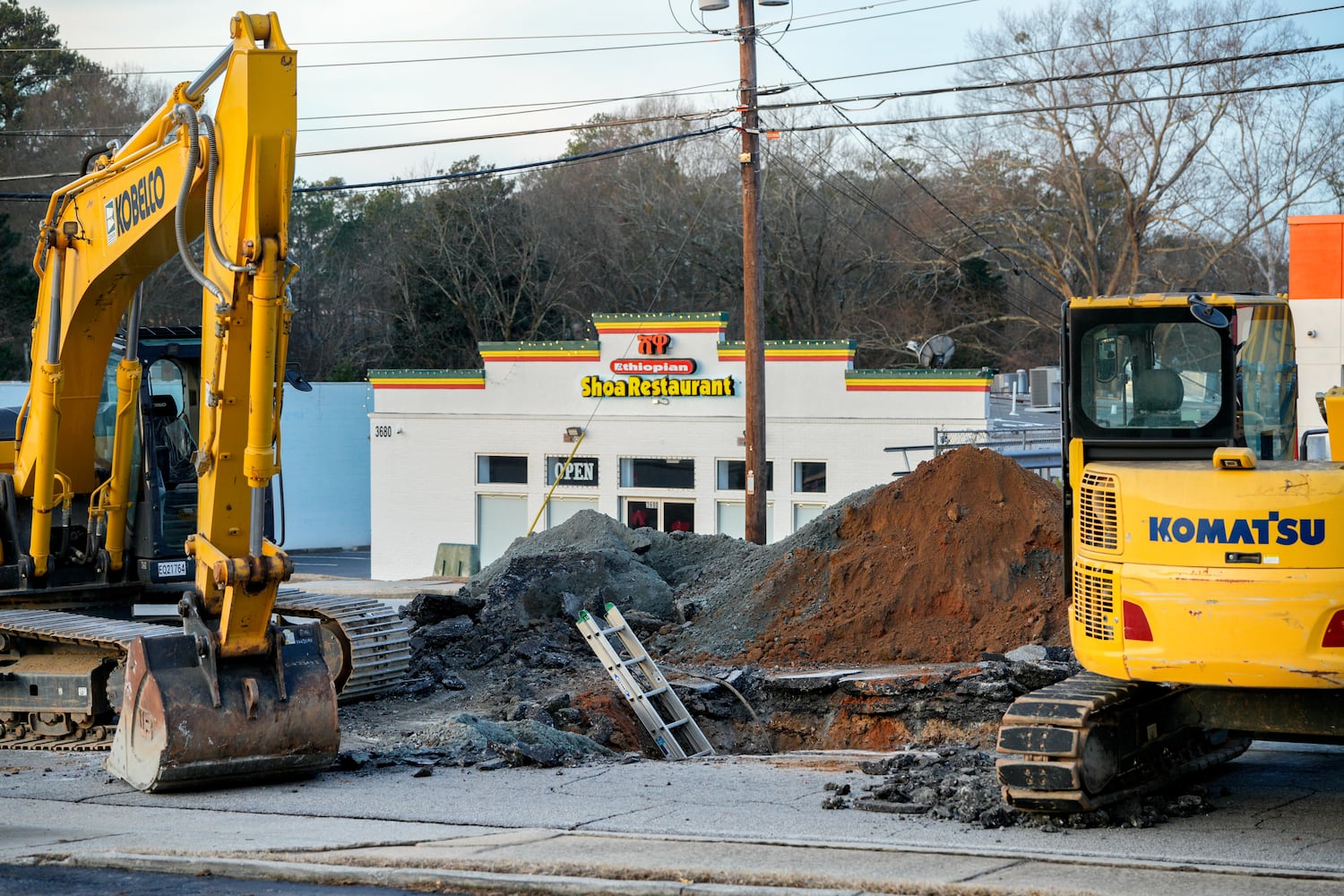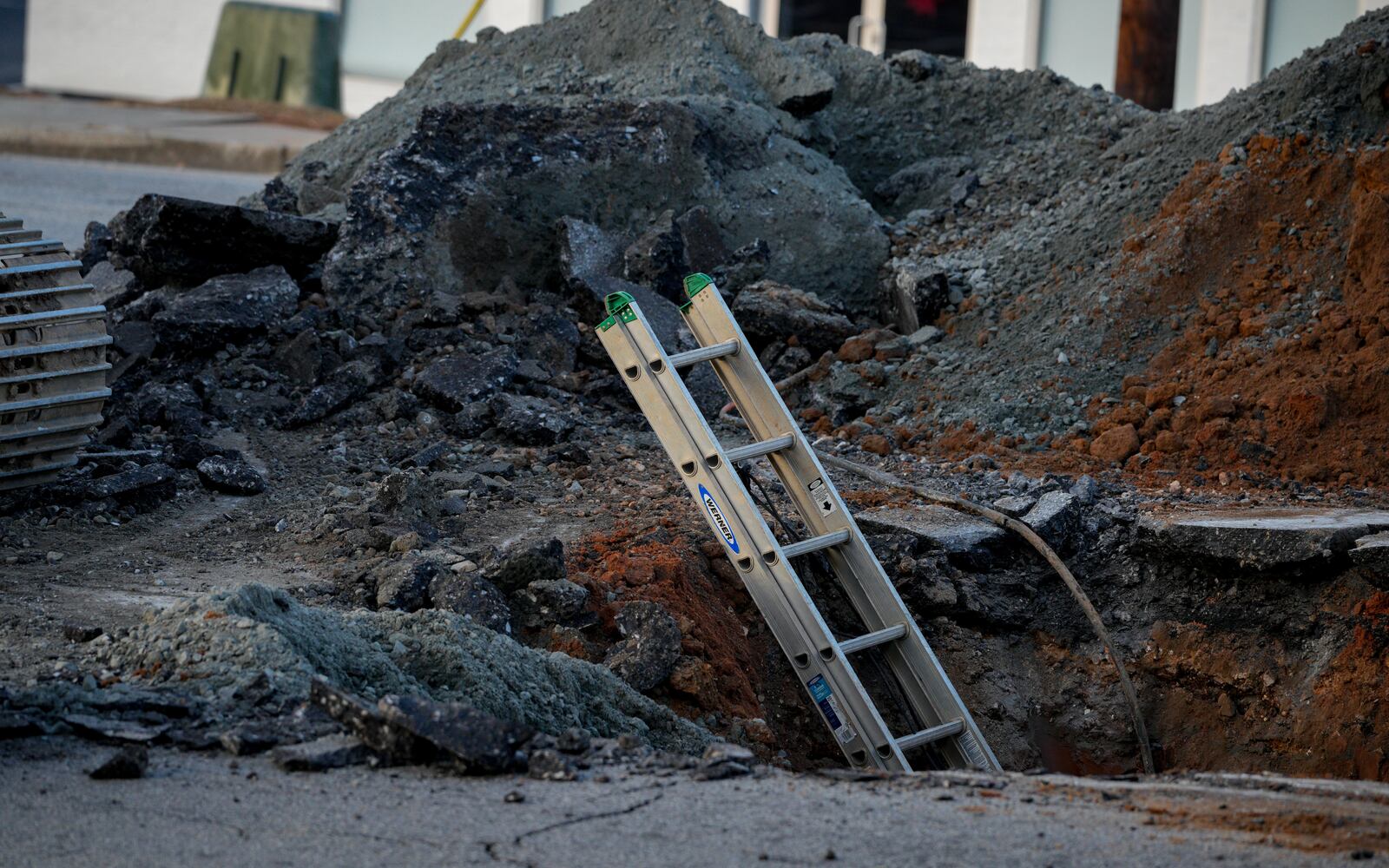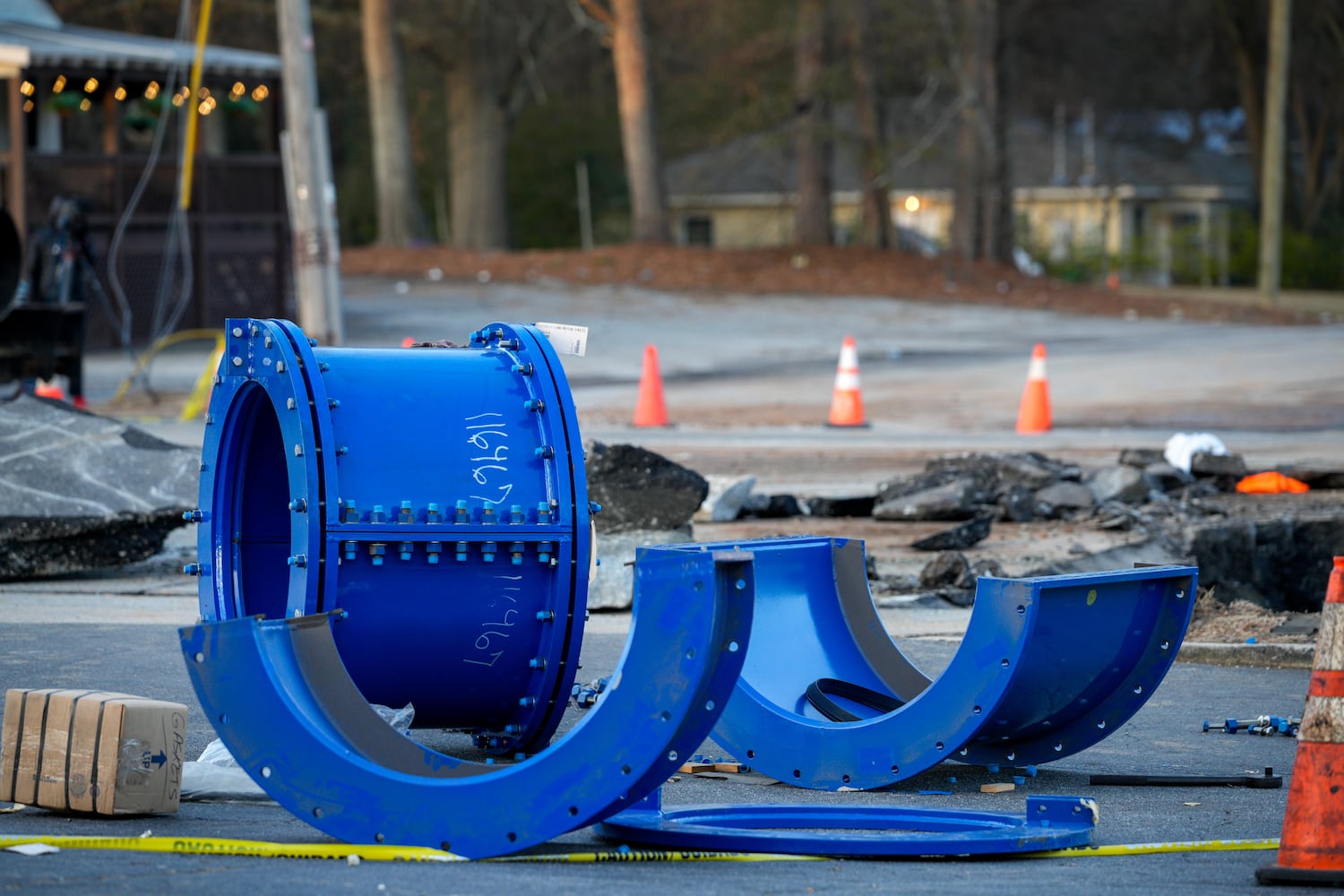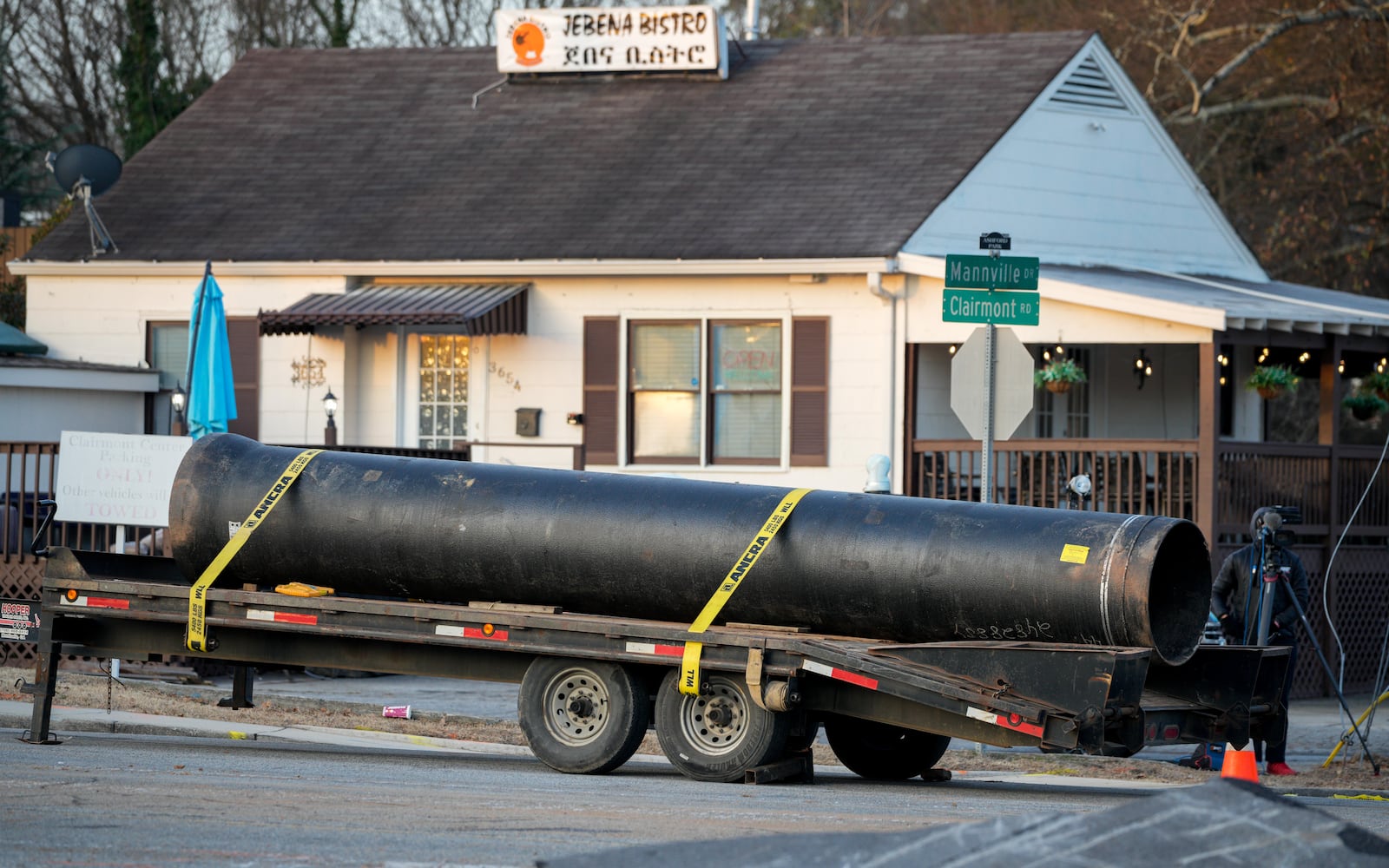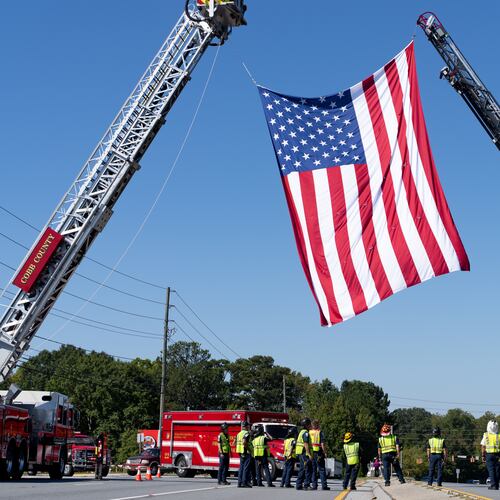[UPDATE]: The boil water advisory in DeKalb County is still in effect Saturday, but for a smaller area.
The advisory is still in place along a half-mile stretch on Clairemont Avenue between North Decatur Road and Scott Boulevard.
“Residents may experience some slight fluctuations in their water pressure and possible discoloration as the system stabilizes,” an email sent to county commissioners detailed.
Repairs to the broken water main were completed Thursday afternoon, County Commissioner Ted Terry has said.
The pipe on Clairmont Road burst Tuesday, causing the road between Bragg Street and Dresden Drive to close and several businesses to shutter their doors. The road reopened Friday morning, Channel 2 Action News reported.
[ORIGINAL STORY]: Repair work on a World War II-era cast iron water main in DeKalb County has stretched into a third day, further hurting small businesses that had already lost revenue during last week’s snowstorm.
The broken 30-inch pipe, which was installed in 1941, burst Tuesday and caused a large hole to form on Clairmont Road, which has been closed between Bragg Street and Dresden Drive.
County officials said the road remains closed Thursday. Crews will continue repairs throughout the day, and a boil water advisory remains in place until further notice.
Credit: Ben Hendren for The Atlanta Journal-Constitution
Credit: Ben Hendren for The Atlanta Journal-Constitution
DeKalb’s aging infrastructure has been a major concern in recent years. More than 40% of the county’s water pipes will be at least 70 years old by 2030, according to a 2024 study. Today, the pipes are handling the water needs of a population nearly nine times greater than when they were installed.
“I don’t know how many people are going to venture down here, but we have to be open,” Jan Bolgla, owner of Atlanta Vintage Books, told The Atlanta Journal-Constitution. “For a small business, any day you have to be closed is a problem.”
The boil water advisory affects an area about five miles to the south of the break.
Almost 8,800 households, representing an estimated 20,000 people, in the Toco Hill neighborhood and surrounding locations had low to no water pressure Wednesday. Emory University, some Emory Healthcare hospitals and clinics, as well as K-12 schools were also impacted.
The boil water advisory included the area bordered by Moreland Avenue/Briarcliff Road on the west, Candler Street/Clairemont Avenue on the east, Mason Mill Road on the north, and Hosea Williams Drive on the south.
It will be in place until further notice, the Department of Watershed Management said in an alert sent to residents. The alert initially included incorrect boundary directions.
DeKalb residents who receive their water from the city of Atlanta are not affected by the boil water advisory, officials said.
DeKalb officials told Channel 2 Action News that the county has called crews from Charlotte, North Carolina, and Birmingham, Alabama, to help with the pipes.
Officials, including county CEO Lorraine Cochran-Johnson, Commissioner Ted Terry, whose district includes the affected area, and all three spokespersons for the county have not returned the AJC’s requests for comment.
“It’s our intent to rectify the situation as quickly as possible,” Cochran-Johnson told the news station.
The repair work, which began Tuesday, left several businesses cut off to traffic, including the Clairmont Center shopping plaza. Officials said the loss of water pressure was necessary to drain a water tank and to access the damaged pipe for repairs.
Bolgla said her business was just recovering from having to close Friday and Saturday due to the snow and ice that covered metro Atlanta. Typically, her store sees about 20 to 30 customers per day. On Tuesday, just five people stopped by.
Other businesses had to close entirely.
Jose Lopez at the La Chiquita Mic convenience store was frustrated at the pace of work and said he doesn’t even know how much money he lost.
“Too many customers called me,” he said with the exhaustion of having to tell each one that they were closed.
Looking out her store window at the ongoing work, Bolgla did not sound as optimistic about the repairs being done by Wednesday.
Not only do crews have to install the new pipe, they also have to pave over it, she noted.
“That won’t be fast,” she remarked. “I mean, I’ll be surprised if it’s open (Thursday).”
If it goes on for too long, she said, “we’ll be in trouble.”
“I still have employees to pay, and utilities and everything, overhead,” she said.
Emory Healthcare locations within the advisory’s area included Emory University Hospital and its rehabilitation facility and all Emory clinics on Clifton Road. Emory Long-Term Acute Care on North Candler Street was also impacted.
The sites were still caring for patients, including surgeries, procedures and appointments, and bottled water was available for drinking and personal hygiene needs at affected facilities. The health care system said it was following food preparation guidelines from the Centers for Disease Control and Prevention.
At Emory University, there was “a significant drop in water pressure” as crews worked on the repair.
Decatur schools also provided bottled water for students, and sack meals were served for breakfast and lunch. DeKalb schools said it made no schedule changes and that it delivered bottled water to several locations.
The break, according to the county, was caused by the age of the pipe, compounded by the recent freezing weather.
Metro Atlanta has experienced serious water issues before, most notably last year when a huge water main broke and led to a cascade of smaller breaks that halted water to a huge swath of the city’s downtown area and then Midtown. City officials scrambled to get the water flowing again to residents, businesses, hotels, government buildings, tourist attractions and other sites.
Across the Southeast, water utilities had an average of 16 water main breaks per 100 miles of pipe, the American Water Works Association found. In DeKalb, that rate is 33 and was deemed “excessive” by the water system study.
In 2023, there were more than 800 breaks along the county’s roughly 3,000 miles of pipes, nearly half of them being cast iron and asbestos cement, both of which are no longer used. Cast iron typically clogs from a buildup of rust corrosion, while asbestos cement simply breaks frequently.
Replacing the system will cost roughly $4.4 billion, the study found. Between 2017 and 2024, the watershed invested $1.25 billion in its infrastructure. The last new water main in DeKalb was installed in 1974.
Bottled water is being dispatched to the following distribution centers:
- Fire Station 1 – 1670 Clifton Road;
- Fire Station 3 – 24 North Clarendon Avenue;
- Fire Station 7 – 1712 Columbia Drive;
- Fire Station 9 – 3858 North Druid Hills Road;
- Fire Station 20 – 2919 Warren Road;
- RaceTrac – 3630 Clairmont Road.
Residents requiring additional information should contact the DeKalb County Department of Watershed Management at dekalbwaterops@dekalbcountyga.gov or by phone at 770-270-6243.
— Freelance photojournalist Ben Hendren contributed to this article.
About the Author
Keep Reading
The Latest
Featured
